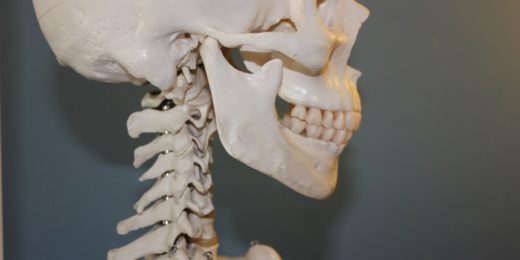Household guidelines and rules related to food help teenagers eat healthier away from home, new Stanford research suggests.
Category: Wellness
Contraception: An evolution and history
At the recent Stanford Women's Health Forum, Kate Shaw, a clinical associate professor of obstetrics and gynecology, spoke about the evolution and history of birth control.
Diet can be used to adjust microbiome composition, new study suggests
The composition of the microbiome can be adjusted by pairing bacterial species with their favorite foods, a new Stanford Medicine study suggests.
Causes of physician burnout and way to address it
The president of the Association of American Medical Colleges details factors that contribute to physician burnout and broad cultural changes that can help.
U.S. doctors saddled with four times the amount of note taking as foreign counterparts
Regulatory reform could reduce the bloated documentation requirements facing American physicians and help to reduce rising levels of burnout.
On memoirs, social media and what it means to be human
Social media, unlike memoirs, can problematically create an image of a sanitized, perfect existence that is removed from real lives, Jacqueline Genovese writes.
The epidemic of undersized jaws according to Paul Ehrlich
In a new book, Paul Ehrlich lays out the claim that modern life has been harmful to smaller jaws, which he says leads to problems ranging from heart disease to sleep apnea.
Keeping fit fights off genetic risk for heart disease, Stanford study finds
In one of the largest observational studies on fitness and heart disease, researchers examined found that people with higher levels of grip strength, physical activity and cardiorespiratory fitness had reduced risks of heart attacks and stroke.
Spinal health and back pain: Straightening out facts from fictions
What can be done to treat and prevent back pain? And how does our mental/emotional health affect our spinal health? Esther Gokhale, a spinal health educator and author, weighs in.
New toolkit aims to prevent dangerous blood clots in pregnancy
The Stanford-based California Maternal Quality Care Collaborative has released a new toolkit to help doctors prevent dangerous blood clots in pregnant women and new mothers.
Stress hormone rise at night leads to weight gain
Immature fat cells grow up if stress hormones rise at night. A new study explains the molecular underpinnings of why people gain weight due to chronic stress, disrupted circadian rhythms and treatment with glucocorticoid drugs.
Mindfulness and emotional awareness can improve your work experience, Stanford researcher says
Paying attention to your emotions at work can improve your job experience and performance, says mindfulness expert Leah Weiss.
In Uganda, women with heart disease shown to take great risks to have a family
Thousands of women in the East African country of Uganda suffer from rheumatic heart disease. Although pregnancy can lead to severe complications, a new study shows that many women are putting their health at risk in order to have children.
Put well-being first, Arianna Huffington urges Stanford Medicine community
Using data and storytelling, Arianna Huffington is working encourage a cultural shift toward health and wellness, she explained at a conversation with Dean Lloyd Minor on campus.
Think your job is killing you? You might be right, Stanford business professor explains
Stanford Graduate School of Business Professor Jeffrey Pfeffer discusses in his new book, "Dying for a Paycheck," how stress from work is a major health problem.
Depression in reproductive-age women is relatively common and undertreated, new research suggests
Stanford research shows that nearly one in 20 reproductive-age women have depression and less than one-third are taking antidepressants.

















